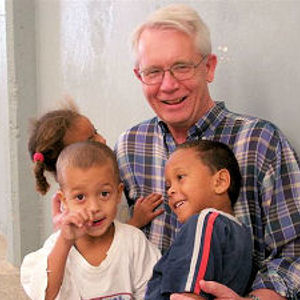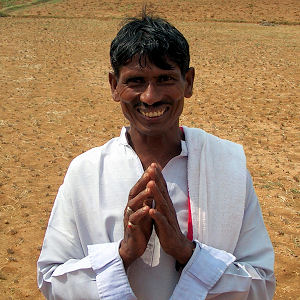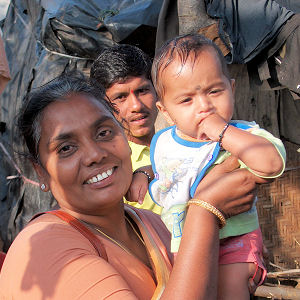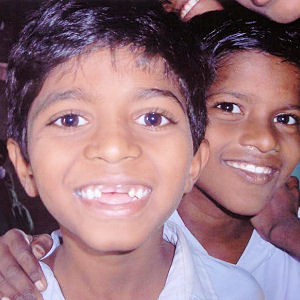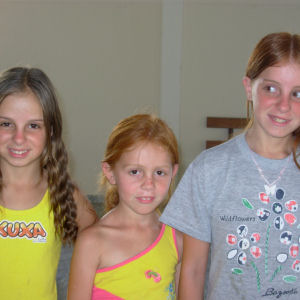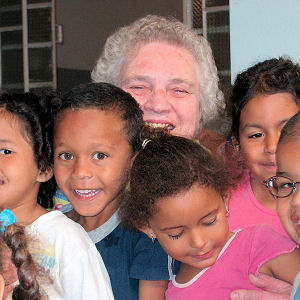Nepal – Primary Healthcare Clinic with Friends of Shanta Bhawan (2018-2020)
On 1 January 2018, Sahakarini signed a two year agreement with the Friends of Shanta Bhawan (FSB) Primary Healthcare Clinic in Nepal. FSB is a non-profit, non-governmental medical out-patient clinic located in Northeast Kathmandu. The clinic provides high quality, patient-centered medical care to those in need, regardless of their financial status. Since 1983, over 30,000 marginalized and impoverished individuals have received subsidized primary health care services annually, with approximately 100 patients visiting the clinic per day.
The project with Sahakarini has two major components: the first will expand the clinic’s capacity to treat women and children; and the second will improve the clinic’s equipment and infrastructure to provide high quality diagnostic and treatment services.
The Executive Director states that the project will allow FSB to improve the clinic’s environment, modernize their outreach, expand their patient base and hire new doctors, which will improve the quality of services and promote the clinic’s longevity.
With Sahakarini’s support, the clinic was able to open a new pediatric unit and appoint a new pediatrician on 1 February 2018.
Report April 2020
FSB successfully moved into a new building in a location with a more peaceful and quiet environment. The clinic now has ample space for their patients – children, guardians, and elderly – to feel comfortable while waiting to receive their consultations, treatments and medications. Over the past two years we have scaled up our Pediatric and Gynecological services, all of which are provided at subsidized rates.
The Health Center opened a new Pediatric unit, with prefab nursing rooms, which expanded its clinical capacity to treat women and children. We have also improved the clinic’s equipment and infrastructure, thereby, providing high quality diagnostic and treatment services for our clients. Additional technical improvements included purchasing computers to update patient record keeping and financial systems, resulting in increased accuracy, transparency, and accountability of our funding expenditures.

SFU Volunteer Student Olivia inaugurating pediatric unit 
New Pediatrician Ms.Rakshya examining the child
Report May 2020
Namaste.It’s been long since I haven’t able to interact with you.Sorry have been kind of idle & busy with all kinds of things going on with this COVID 19 pandemic. At present Kathmandu is still in lock down situation with house stay order by the government till June 2nd. The number of positive cases for corona in Nepal as of right now is believed to have reached 810 , recovered patients are 155 and 4 deaths. The country is still in a stand still mode without any financial or any other types of activities going on which is very sad. All types of health services running by private sectors is still closed. We only have government health services functioning. Lots of Nepalese migrant workers working in India and other countries who want to come back to the country have not been able to return due to various reasons. Even migrant Nepalese workers from India wanting to come back to the country have been stranded in the boarder because of Nepalese Government’s policy. The government has not been able to do much in response to the COVID 19 crisis that we face. It is still a kayos situation here with people frightened the out break of this crisis in Kathmandu and Nepal might be uncontrollable if we do not take the right approach in moving ahead.In my opinion we all need to abide with the guidelines of WHO in controlling this pandemic until we do not have drugs / vaccines available for treatment. Unless and until we practice social distancing, wearing mask and hand wash it is believed that we will not be able to contain this crisis. This is going to be a very big challenge for a country like ours where we lack behind for everything from education to financial status and various services from health to food. We have started our vaccination and TB DOTs program at FSB. We have provided PPE for our health care workers while providing services. We needed to provide the routine vaccination for children because we are aware to the fact that if we do not start this as soon as possible then once abolished diseases might reemerge creating new epidemic. We are trying our best to make our clients aware on the importance on social distancing, wearing mask and hand washing in order to contain this pandemic. We want to run our organization with full fledged services but we have constraint once we over come this we will be running FSB in full capacity.We have lot of challenges at present to save FSB because the revenue or income of the organization is almost zero. Coping with the situation in paying the rent and other expenses is very hard. FSB takes this challenge and may be we will be able to overcome this. We know that delivering care to the deserving marginalized community with honesty will lead us to success one day. We have received the funds transferred by Sahakarini which has been of great importance to FSB and would like to thank you and the Sahakarini family for their generous support. We look forward to receiving Sahakarini’s and any other individual or institutions support to sustain this work for stability. Thanking you and looking forward to receive your support, help and advice as always.
With Best,
Sanjaya
Medical Need in Nepal December 2020
Friends of Shanta Bhawan (FSB) in Kathmandu Nepal, a charitable organization, made an urgent request for funding to resupply their Clinic’s shortages of medicines, dressings and laboratory supplies. The facility daily serves the medical needs of of a marginalized and impoverished local population of 30,000 and assists about 100 patients daily. The pandemic has severely reduced its meager revenue which has greatly reduced its ability to resupply clinical resources. The accompanying videos and photographs highlight the Clinic’s patients, services and facilities. Please help, with your generosity, those who are helping others during these difficult and uncertain times.
We addressed this specific need as a one time funding for this Primary Health Clinic to address an urgent need.
Tanzania – Project SHINE – Sanitation and Hygiene INnovation in Education
Project SHINE is a collaborative research project between the University of Calgary (Global Health and International Partnerships) and the Catholic University of Health and Allied Sciences in Tanzania. The project aims to build the capacity of youth and communities to develop and sustain locally relevant strategies to prevent parasitic infection and improve sanitation and hygiene in Ngorongoro Conservation Area schools and communities. Twenty-three million people in Tanzania lack access to safe drinking water, and over 4000 children die every year from diarrhea due to unsafe water and poor sanitation.
As part of its work, SHINE has formed a working relationship with the Canmore-based Rocky Mountain Soap Company to teach community members to make high quality soap. An article about the soap-making project can be found in the Rocky Mountain Outlook.
Thanks to support provided by Sahakarini, Project SHINE has given rise to a new organization in the Ngorongoro Conservation Area called Nyuat, which means “hard working initiative”. Nyuat’s mission is two-fold: to reach the most marginalized in the community with education about the importance of water, sanitation and hygiene to health, and to make high quality soap that can benefit all and serve as a source of income generation. The group has named their soap Ewong’an, which means “from darkness to light”.
Community health educators accompany Endulen Hospital staff to parent and child field clinics. Soap making has been established. The project has been expanded to include the distribution of 80 biosand filters so that there would be clean water for both drinking and hygiene purposes as well as for the soap making. Technicians have been trained to distribute the biosand filters.
The next focus of the group is on sales and marketing of the soap for income generation. Entrepreneurial training will be provided and a sales and marketing plan developed. The objective is for the project to be self-sustaining within five years.
Updates are available on the Project SHINE Facebook page.
Visit the Project SHINE website! Here you can learn more about the SHINE approach to empowering youth and communities in addressing water, sanitation and hygiene challenges, the communities and schools we engage with, our partners and the team.
You can also order high quality, uniquely Maasai soap handcrafted by Nyuat, a community-based social enterprise in Tanzania that stems from the project. Check it out, spread the word and be a part of the journey!
Click here for Tanzania SHINE report
As part of its work, SHINE has formed a working relationship with the Canmore-based Rocky Mountain Soap Company to teach community members to make high quality soap. An article about the soap-making project can be found in the Rocky Mountain Outlook. https://sahakarini.org/partners-projects/tanzania-project-shine/
Nyuat Project SHINE (Tanzania) is a health and sanitation-based project with Maasai pastoralists in the
Ngorongoro Conservation Area of Tanzania. Access to safe water for drinking and washing is essential to health and prosperity; all aspects of sustainable development depend on it The project features two related activities: 1) provision of clean drinking water through installation of approximately 180 biosand filters to provide safe water in homes across 2 communities, and 2) soap making for local community use and to commercially supply local safari lodges under a for-profit enterprise. The 5 years of project funding will conclude in December 2021.
In summer 2020 during the Covid-19 pandemic the Nyuat Group switched gears to provide free soap in the local area as a community service. The plan is to resume sales to lodges once tourism improves. In March 2021 the Nyuat team in the Ngorongoro Conservation Area conducted a monitoring and long-term evaluation of the biosand filters. Results were very positive, indicating decreased diarrhea in children and adults, most willingly shared water with families other than their own, and the majority would recommend others buy or receive filters.
Future project possibilities are to install more filters with increased ongoing maintenance or repair based on a pay for service model.
Project motto:
Tuko Pamoja/We Are Together
(Photo credits: Godwin Ole Mshumba used with subject’s permission)
Project Report 2020
The project demonstrated considerable success in its first 3 years. All biosand filters were deployed and used to provide fresh, clean water and single filters, due to their popularity, were rumored to be serving multiple households. In addition to clean water, local production and widespread community use of soap was needed to achieve desired health and sanitation outcomes.
Nyuat has successfully demonstrated its ability to produce soap and has also completed preliminary sales to a local lodge and other consumers. In the last year, the project emphasis was to up-scale the soap aspect from a small, volunteer run, community-based project to a formally incorporated soap-making enterprise. The responsibilities that the latter brings (e.g. finances, administration, personnel, and sales and marketing) has proven to be a major hurdle for the group and its current leadership.
While grateful to all who have contributed to the project’s success this far, everyone is in agreement that added management expertise is required to achieve a more assured and successful outcome. We eagerly and optimistically await Nyuat group’s recommendations to achieving this goal.
Remember: ‘Nothing worthwhile was ever easy’.
Project motto: Tuko Pamoja/We Are Together
Remember: ‘Nothing worthwhile was ever easy’.

SHINE. Prepping Nyuat soap for cutting 2020 
Shine Soap making Maasai woman and RMSC 2015
Project Report July 2020
From Dr. Sheri Bastien (project co-lead)
“Project SHINE is thrilled to announce that we have expanded our hard working team in Ngorongoro to include new leadership through Julius Moses Shangai. Julius was born and raised in Endulen where he completed his primary and secondary education, before being selected to attend Lyamungo High School in Moshi. He subsequently went on to complete a Bachelor of Education at St. Augustine University in Mwanza. After his studies Julius returned to Endulen where he served as a volunteer at a local primary school and went on to establish a nursery school. While Julius’ strong education and entrepreneurial background is an asset, it is his deep passion and commitment to community service and work that benefits the most marginalized that inspires us most. He is quickly learning the ropes when it comes to soap making and integrating well with the group. Welcome aboard Julius, and heartfelt thanks for your close collaboration with Nyuat members including Godwin Olemshumba who nominated you for the position, and who have poured their heart into the project since Day 1. Tupo Pamoja! (We are Together)Link: https://www.facebook.com/projectshineedu/
India – Adivasi Children’s College with Pipal Tree Trust (2015-2018)
India: Pipal Tree Children’s College
Through one of our board members, Professor Varghese Manaloor, University of Alberta. Augustana Campus, we were introduced to Pipal Tree, a non-profit trust established in 1984. Pipal Tree initiated the Children’s College in 2011 near the Nagarahole National Park in Mysore district of Karnataka to assist disadvantaged Adivasi children belonging to Jenu Kuruba and Yerava Adivasi communities to complete school education.
Adivasi makes up 8.6% of India’s population or 104 million according to the 2011 census. Many have been displaced by the conversion of forests as wildlife sanctuaries and national parks, construction of reservoirs, and other development projects, which denied them access to their traditional ways of making a living from the forest. Today most Adivasi children drop out of the government schools because their parents are forced to migrate in search of work, or because there is little motivation to go to school. Only a minority of them finish high school. The number of children who go for higher education is infinitesimally small.
Through one of our board members, Professor Varghese Manaloor, University of Alberta. Augustana Campus, we were introduced to Pipal Tree, a non-profit trust established in 1984. Pipal Tree initiated the Children’s College in 2011 near the Nagarahole National Park in Mysore district of Karnataka to assist disadvantaged Adivasi children belonging to Jenu Kuruba and Yerava Adivasi communities to complete school education.
When the Kabani dam was built in 1973 a large number of Adivasis from this area were displaced and became migrant agricultural labourers. Later the forest department evicted a large number of Adivasis from their forest homes on the pretext that human beings should not live in a wildlife sanctuary. They were seen to be a threat to wildlife. Their struggle for land and access to forest and its resources for livelihood still continue. The Adivasi children are rooted in place and in the community of that place. But they are not well cared for as community resources are limited. They are straddling the cultures of tribal and modern India and they have little hope of thriving without adequate access to nutritious food, clean water, shelter and education.
The programme provides shelter, food, medical care, and assistance with school curriculum, and supplements the school education with activities rooted in tribal values and modern needs. The vision of this programme is to provide an environment where an Adivasi child can actually dream of a life that is different from that of his poverty-stricken parents. The programme believes that Adivasi people and their children have much to contribute. Their centuries of wisdom about living sustainably on this planet must be harvested and they should be enabled to contribute to our shared future. The Children’s College aims to educate the children of the forest who may then help us all bridge the increasing divide between the earth based knowledge we need to survive and the mechanics of modern life.
The Sahakarini board has approved a project covering two years’ expenses in the amount of $21,000.00. We look forward to hearing how the project progresses and the effect it has on the lives of the children and their families.
UPDATE REPORT
Because Pipal Tree’s experience showed that girl children needed more support in completing their education than boy children (due to several cultural and social factors which limit the mobility of girls), Pipal Tree made the decision this past year to select 7 girls to replace the 7 boys who were graduating and after the remaining boys graduate, to enrol only girls. All new students would be girls with the first graduates expected in 2018. The school reported that they received more requests for girls to attend than they are able to accommodate.
As the work of the College became better known, there were many applications for new students.
Board members sent letters to the children and when Siddhartha, leader of Pipal Tree, visited here in November, he brought with him many painted bamboo pencil holders made by the children. These were among the most popular items at the 2016 Loaves and Fishes auction and have become treasures to those fortunate enough to have received one. According to Siddhartha, this phenomenon both amazed and amused the children.
Click on the following link to read a letter Siddhartha sent to Sahakarini about his visit. 2016 Siddhartha Letter to Sahakarini
Pipal Tree is working hard on ensuring that the tribal values that are the children’s heritage are promoted and at the same time, that the students receive help with their academics. Committees of children have been formed – Kitchen, Campus and Kitchen Garden Maintenance, Library and Daily Activities.
Click on the following link to read a U of A student’s reflection on her visit to the Children’s College. Reflection on visit to Pipal Tree Children’s College
Uganda: Kitile Sand Dam Project (2017-2018)
Based on the successful construction of three earlier sand dams, Sahakarini has undertaken support for a fourth sand dam in cooperation with the Utooni Development Organization. The Kitile Community Sand Dam is located in Machakos County, Kenya.
Sand dams are low tech, proven, sustainable methods to mitigate the problems endured daily by Kenyan subsistence farmers due to climate change, minimal rainfall, flash flooding and vulnerable food production methods. The dams are effective in providing water for agricultural and domestic use during the dry seasons.
Dams are constructed by local peoples with assistance and advice from Utooni. The project will enhance community development through the work of the community-based organization, while the dam will provide a water harvesting system, and a shallow well to allow some water to be filtered to minimize contamination. The project will also introduce conservation agriculture; upgrade poultry and beekeeping practices; teach small scale irrigation; enable tree planting; and encourage land terracing.
Dr. Varghese Manaloor, Sahakarini Board member and U of A professor at Augustana with expertise in sustainable agriculture and economics, confirmed the value of sand dams on a recent visit to Kenya.
Recently funded and supported projects will be reported on at a later date.







